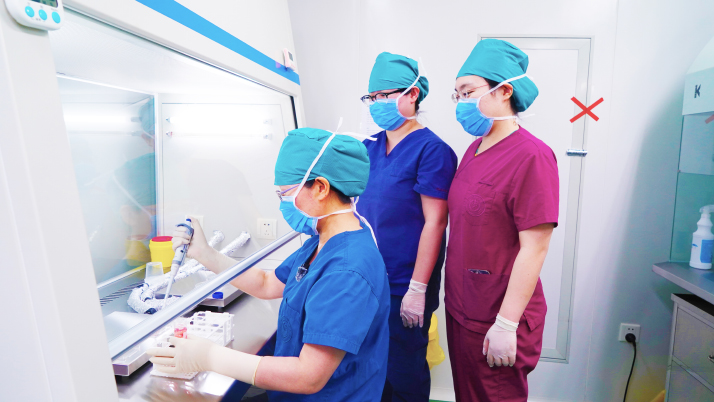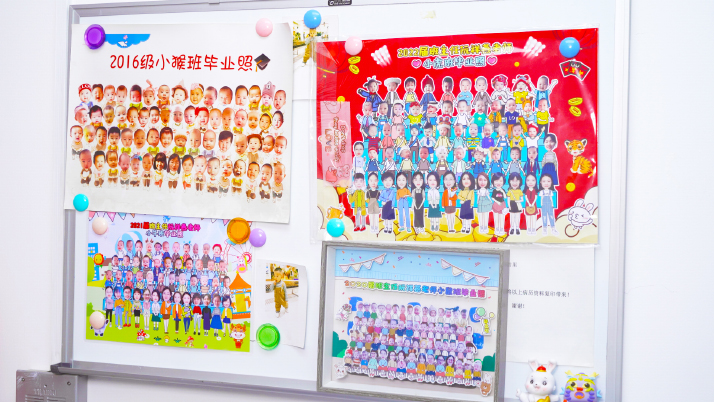| China |
| A pioneering doctor's breakthroughs in protecting women's health and wellbeing | |
|
|
|
|
|
Ruan Xiangyan, a 59-year-old doctor in Beijing, has not sat down for a Chinese New Year reunion dinner with her family for many years. Ruan is the director of the Department of Gynecological Endocrinology at Beijing Obstetrics and Gynecology Hospital, affiliated with Capital Medical University. Each year, she remains on duty at the hospital so her colleagues can go home to their families.
On every Chinese New Year's Eve, families gather for one of the most important meals of the year. Sometimes called the "reunion dinner," the meal is what many love most about the holiday. It usually features their families' best recipes, as well as many laughs, toasts and a warm, festive atmosphere. "My husband and daughter are both doctors. We're too busy even to pose for a family photo, let alone sit down for New Year's Eve dinner," Ruan told Beijing Review. "Although the Spring Festival is coming, doctors should settle themselves like still water," she said in an interview on February 6, adding doctors must keep their minds clear at all times as their job is to save lives.  (Above) Ruan Xiangyan and her students conduct an experiment at the ovarian tissue cryopreservation bank in Beijing on February 6 Photos recording new babies born each year to patients who have undergone Ruan's treatments (YIN KANG)
A pathfinder Ruan began working at Beijing Obstetrics and Gynecology Hospital in 1999, when the hospital hired her to help with the creation of China's first menopause service center. As the hospital's first post-doctoral researcher, she researched infertility, gynecological oncology and focused ultrasound. The center was developed into the country's first dedicated gynecological endocrinology department in 2002. Gynecological endocrinology covers 40 to 60 percent of the gynecological diseases that occur during a woman's lifetime, including during menopause, Ruan told Beijing Review. "The public has a limited understanding of gynecological endocrinology and treatments that target problems resulting from ovarian failure," she said. "When we established the department, there was no precedence to refer to in China, so I went overseas to study as a visiting scholar four times in the U.S. and Germany to gain perspective and experience," she said. Ruan made another visit to Germany in 2010, learning about ovarian tissue cryopreservation and transplantation. The process, which involves removing tissue from ovaries and storing it at low temperatures, can be life-changing for patients undergoing treatments that destroy reproductive cells, such as chemotherapy and radiation. Mastering the technique allowed Ruan and her team to remove healthy tissue from ovaries before the treatments and replace it after. "Today, our gynecological endocrinology department leads not only China but also the world," she said. The department receives approximately 500 outpatient visits each day, making it the world's busiest department in its field.  Photos recording new babies born each year to patients who have undergone Ruan’s treatments (YIN KANG)
Creating miracles In Ruan's clinic, approximately 20 percent of outpatients are diagnosed with premature ovarian insufficiency, with more than half of them developing the condition as a result of cancer chemotherapy or bone marrow transplants. According to the National Cancer Center, China reports over 4 million new cancer cases annually, with an estimated incidence of 294 per 100,000 people. "We estimate that every year, at least 1 million girls and young women undergo chemotherapy or radiation therapy, which can undermine ovarian function and harm their lifelong health," Ruan said. "If you think of cancer cells as being like walnuts and egg cells as being like grapes, the force of crushing a walnut is more than grapes can bear," she said, explaining why cancer treatments are so damaging to fertility. Once the ovarian function declines, it leads to a depletion of egg cells, which then cannot be preserved through any treatment. There are three options to preserve a woman's reproductive ability during anti-cancer treatments: embryos cryopreservation, oocyte cryopreservation (egg freezing), or ovarian tissue cryopreservation. Compared with the others, ovarian-tissue cryopreservation is better able to preserve ovarian endocrine functions, especially for children and adolescents. "So they not only beat their cancer but also preserve their ovarian function and fertility," Ruan said. In addition, freezing tissue rather than eggs does not require inducing ovulation, making it the most suitable approach for those requiring emergency treatment. Established in 2012, the hospital's ovarian-tissue cryopreservation bank, the first in China, has served over 500 patients, with the youngest patient being only 7 months old. Li Jing, 37, was one of them. In 2016, she was diagnosed with a blood disorder and her doctor told her the necessary chemotherapy would result in ovarian failure. Li decided to freeze her eggs to fulfill her dream of having a baby after recovery, but was unsuccessful. As the day of the bone marrow transplant was approaching, she turned to Ruan, who helped her to preserve her ovarian function through ovarian tissue cryopreservation. Two years after the bone marrow transplant, hematological experts confirmed complete remission of her illness and discontinued all medications related to the transplant. In September 2018, Ruan's team transplanted some of Li's cryopreserved ovarian tissue back into her body. In December 2020, Li became pregnant and gave birth to China's first baby born following a frozen ovarian tissue transplant. Ruan and her team have now conducted such 19 transplants, all successful. The success rate is higher than the international average of 70 percent. The length of time ovarian function can be maintained after the transplant stands at an international average of 2.5 years. However, the average of Ruan's first batch of patients has exceeded five years, with the longest one maintaining function for over seven years. Last May, Ruan and her team released the world's first technical specification for ovarian tissue cryopreservation and transplantation, providing a valuable reference for national operational guidelines. A doctor's duty Generally, when Ruan serves outpatients, the appointment platform releases 30 slots per half day. But the actual number of patients she receives is often double. It has become common for her to work without taking bathroom breaks for several consecutive hours or to forget to drink water while squeezing in time for patients. "We need to understand the needs of each patient and tailor an examination program accordingly. Based on the results, we can then determine a personalized plan for them. Everyone case its own distinct features," Ruan said. Ruan thinks a positive attitude is necessary for doctors. "Hospitals in Beijing, the capital of China, are regarded as the last hope for many patients with rare or severe diseases. So we need to give them warmth and encouragement." The best part of being a doctor is that I can help patients solve problems, Ruan said, adding she enjoys the job and seldom feels frustrated. But Ruan still cannot forget the unfortunate passing of one patient in particular. When she was a fresh resident in the late 1980s, she met a woman suffering an amniotic fluid embolism. This condition had a high likelihood of fatality in those days, and the patient's condition deteriorated rapidly. "She begged us to save her life. But we failed to do so," Ruan recalled. Doctors do not want patients to die, especially not in front of their eyes, and want to live up to patients' trust, she said. "But there are still many unsolved medical problems waiting for us to study and explore." (Printed Edition Title: Hospital's Hope) Copyedited by G.P. Wilson Comments to liqing@cicgamericas.com |
|
||||||||||||||||||||||||||||
|